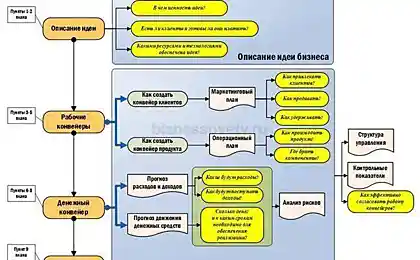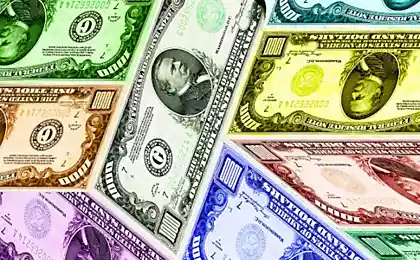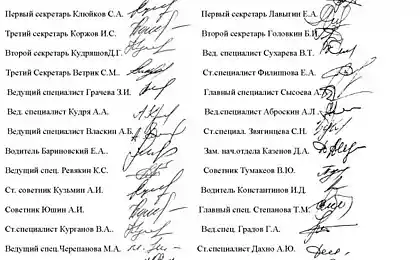184
Poisonous People: How Much Business Hurt Does Every “Toxic” Employee
Harvard Business School professor Dylan Minor has calculated the damage caused by "toxic," unpleasant workers, and shares his findings in a blog post.
When hiring new employees, we usually think about how to find outstanding people, superstars. But about employees who harm business, toxic workers think much less. And our research shows that one such toxic employee can negate the benefits that two stars bring to a business.
Toxic employees cause damage to organizations—either property damage or harm to other employees. They can steal, cheat, intimidate colleagues, molest them. We found that selfish and self-confident people are more likely to be toxic workers.
A colleague and I recently wondered: Where do these toxic employees come from and what are the consequences of hiring them? We looked at a large database of 60,000 employees in eleven firms from different industries, which detailed the behavior of employees.
And they found that superstars -- the top 1% of the workforce -- add $5,000 to the company's profits a year. A toxic worker costs an average of $12,000 a year.
I mean, One toxic employee nullifies the work of more than two superstars. This conclusion supports a more general conclusion:“Bad” workers have a stronger influence on the results of the organization than “good” workers.
Interestingly, we also found that these toxic workers are even more productive than the average employee. This may explain why they stay longer than they should. We also noticed that workers who say they always have to follow the rules are more likely to be toxic. Perhaps they behave pedanticly at the expense of common sense or decent behavior.
What do managers do? Pay attention to potential signs of toxicity when hiring.
For example, we found that more confident employees are more productive on average. But they are often more toxic. We can even calculate the impact of this dilemma on a company’s bottom line: One notional point increase in confidence adds $122 to earnings due to productivity gains, but with a certain probability leads to a toxic employee, which reduces its profits by $1,300 per year. That is, hiring a more confident employee can cause a loss of $ 1,000 per year.
In other words, when we hire and reward people based solely on their performance, there are unintended consequences that, paradoxically, can reduce productivity. Therefore, it is important to consider as many aspects of employee behavior as possible, not only his or her self-confidence and productivity, but also the quality of teamwork and loyalty to the team.
P.S. And remember, just changing our consumption – together we change the world!
Join us on Facebook, VKontakte, Odnoklassniki
Source: ideanomics.ru/? p=5243
When hiring new employees, we usually think about how to find outstanding people, superstars. But about employees who harm business, toxic workers think much less. And our research shows that one such toxic employee can negate the benefits that two stars bring to a business.
Toxic employees cause damage to organizations—either property damage or harm to other employees. They can steal, cheat, intimidate colleagues, molest them. We found that selfish and self-confident people are more likely to be toxic workers.
A colleague and I recently wondered: Where do these toxic employees come from and what are the consequences of hiring them? We looked at a large database of 60,000 employees in eleven firms from different industries, which detailed the behavior of employees.
And they found that superstars -- the top 1% of the workforce -- add $5,000 to the company's profits a year. A toxic worker costs an average of $12,000 a year.
I mean, One toxic employee nullifies the work of more than two superstars. This conclusion supports a more general conclusion:“Bad” workers have a stronger influence on the results of the organization than “good” workers.
Interestingly, we also found that these toxic workers are even more productive than the average employee. This may explain why they stay longer than they should. We also noticed that workers who say they always have to follow the rules are more likely to be toxic. Perhaps they behave pedanticly at the expense of common sense or decent behavior.
What do managers do? Pay attention to potential signs of toxicity when hiring.
For example, we found that more confident employees are more productive on average. But they are often more toxic. We can even calculate the impact of this dilemma on a company’s bottom line: One notional point increase in confidence adds $122 to earnings due to productivity gains, but with a certain probability leads to a toxic employee, which reduces its profits by $1,300 per year. That is, hiring a more confident employee can cause a loss of $ 1,000 per year.
In other words, when we hire and reward people based solely on their performance, there are unintended consequences that, paradoxically, can reduce productivity. Therefore, it is important to consider as many aspects of employee behavior as possible, not only his or her self-confidence and productivity, but also the quality of teamwork and loyalty to the team.
P.S. And remember, just changing our consumption – together we change the world!
Join us on Facebook, VKontakte, Odnoklassniki
Source: ideanomics.ru/? p=5243























